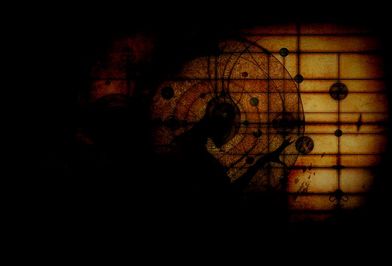|
by Steven Craig Hickman
R. Scott Bakker, Visions of the Semantic Apocalypse: A Critical Review of Yuval Noah Harari’s Homo Deus –thinking through Youval Noah Harari’s new book Homo Deus.
After reading it my thoughts below:
If intentional consciousness is an evolutionary end game, then our task – not for ourselves, but for our machinic progeny – is to invent in AGI (Artificial General Intelligence) not a way to solve the hard problem of consciousness (intentionalism), but rather a way to dissolve the problem altogether: to invent the next stage of Reason and thought and thinking without consciousness: the riddle of the circle squared. If consciousness is the problem, eliminate it. The elminative move…
Will it be possible to construct AGI without consciousness that has access to the environment: – are we bound to our physical limitations, our senses as prosthetics; or, will we develop machinic being without the ‘sense-logic’ dilemma? Is not the body / sense empirical problem what we’re talking about after all, the truth of what Deleuze was already onto in The Logic of Sense? Maybe both scientists and philosophers have been going at this ass backwards all along, trying to solve the hard problem of consciousness when the real problem is the ‘logic of sense’ (i.e., the body as horizon of thought and being – the circle as the limit of our physical senses, our finitude, etc.). We’re stuck in a body with limited capacities, so that all those who are trying to solve Kant’s internal turn toward Mind have been struggling with him and his legacy on his own terms, developing non-issues of the hard problem of consciousness when all along it is the Body not Mind that is at issue and obstacle. Is the next step in evolution the elmination of oranicity of Mind attached to an organic sense-logic based system? Is the next phase in Reason/Mind to advance in the direction an an anorgainic substrate without the natural evolutionary obstacles of consciousness and sense-logic? An a-intentional or non-intentional being? No longer bound ot the emotive or affective relations, the passional Mind? The freeing of Reason from its organic substrate? Isn’t this in some ways what the kludgy neorationalists are seeking, yet tying themselves to outmoded dialectical games of “give and take” of reason, etc.: all those implied rules and regulative structures of normative thought?
What if Reason (i.e., our brain’s complex relations of math, language – discursivity…) was situated in a different body, had access to other prosthetic appendages, would our view onto the world change? Would we no longer need consciousness? If the brain across eons developed solutions to its survival bound to the physical limitations and finitude of the human animal body, what would happen if those conditions were changed? What if the same complex thought processes were situated in a machinic being rather than an organic one? Obviously then we must answer the question: Is the substrate of physical organic matter that makes up the brain at issue? What would the difference entail in using a different substrate? We’re not even concerned with the higher levels of thought here, because my own belief ( I use belief because we do not have access event to such models yet) is that a change in the substrate would entail such a conditional change in Mind that the hard problem of consciousness in machinic being would not be an issue for the simple reason it would have a complete different set of issues and evolutionary challenges.
Those working in AGI and the peripheral subset of the physical mesh within which it will interact seem more concerned with old modes and metaphysics of the sciences than it the underlying conditions. Why?
I laugh when I read all these Neorationalists and Dialectical Materialists who argue against Deleuze’s basic premises in a non-dialectical sense based materialism of the body and embodiment. In Deleuze it is acknowledging that sense = consciousness, that we are on the surface of the senses, the vanishing mediator, the brain travels to operate on the environment. We are the senses, so that it is an integral reality (Baudrillard), one that we cannot step out of or distance ourselves from because it is our material existence: Consciousness is the sense-body or it is nothing. For it is not consciousness, per se that is at issue, but the body and sense which is after all what medial neglect is: the problem not of the limitation of the brain and consciousness, but of the body (prosthetic appendage) evolution stuck it with… the brain had to use the kludgy body it was given to operate on the environment, so that it developed the senses: sight, touch, sound, smell, etc. If the brain or AGI (it’s progeny) had access to other more expansive senses (body/prosthetic) would this not open the door onto other modes of thought and being as well? Strangely by a reversal of the hard problem of consciousness, it’s not the problem of consciousness that needs to be solved but rather the hard problem of its prosthetic body… the human animal; will AGI have access to the environment through more powerful and enhanced feature sets that preclude the problems of the human body/senses? If so it may develop beyond the ‘medial neglect’ issue altogether…
The article is taken from:
0 Comments
Leave a Reply. |
Steven Craig Hickman - The Intelligence of Capital: The Collapse of Politics in Contemporary Society
Steven Craig Hickman - Hyperstition: Technorevisionism – Influencing, Modifying and Updating Reality
Archives
April 2020
|

 RSS Feed
RSS Feed
